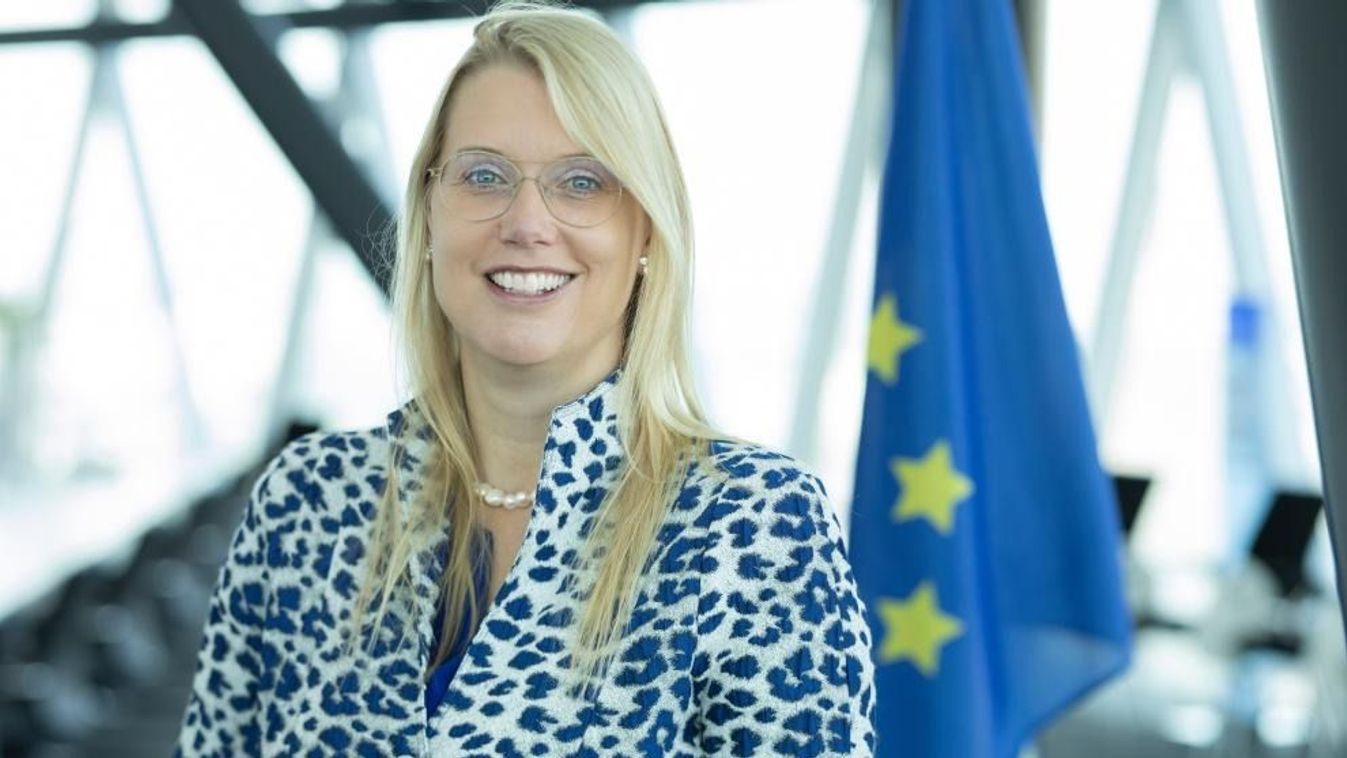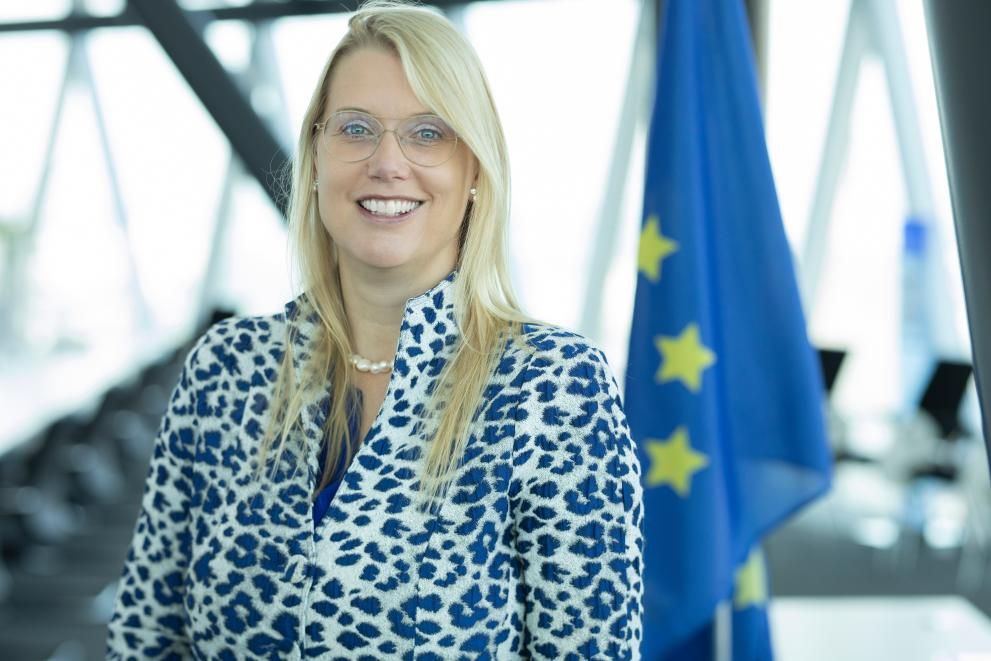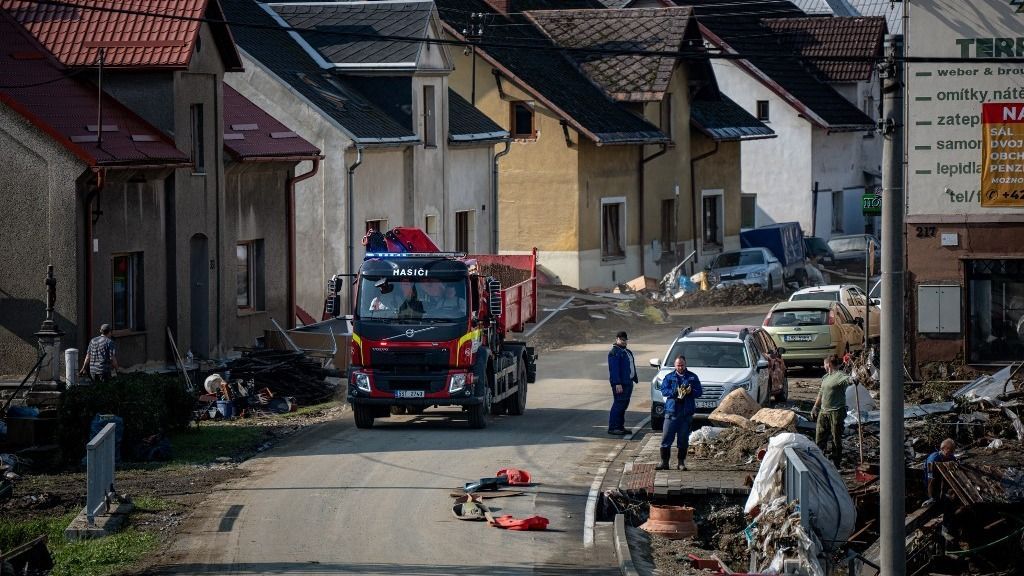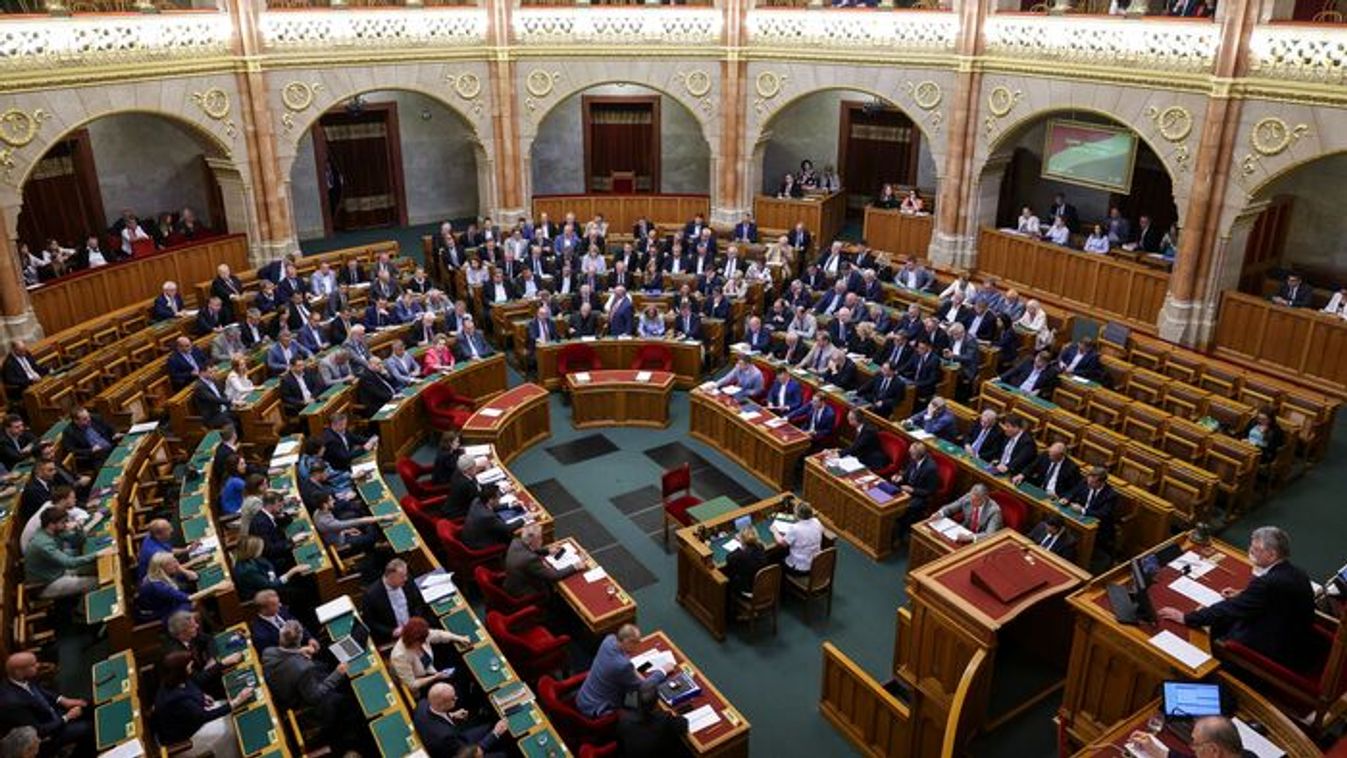
European insurance is in a shake-up amid climate change, EU supervisor EIOPA head says
The recent storm Boris and the heavy floods accompanying it added to warning signs on a European level that climate change justifies an ongoing shake-up in the insurance industry – European Insurance and Occupational Pensions Authority (EIOPA) Petra Hielkema told Világgazdaság on the sidelines of a consumer protection conference of EU supervisory authorities and the Hungarian central bank (MNB) in Budapest. All affected parties including local governments need to step up campaigns to reduce risks, investments launched for protection, and an array of ongoing legislative changes discussed, clarified an implemented, along with guarantees that insurance and pension money channelled into the green transition remains safe.

Central Europe suffered heavy flooding in the past weeks. Are the insurers and insurer regulation in Europe prepared for even worse things to come in the field of natural disasters?
We see a significant increase in the damages in Europe from what we call NatCat disasters: storms, floods, drought, earthquakes and forest fires. The costs are going up tremendously. If you look at the 2010-2019 period, on an EU level you see it at 15,9 billion euros on average per year. In the last three years, it was 50 billion. And if you look at all the events in 2024, including the floods after storm Boris – I don't expect that number to go down this year. So we have a problem. If you look at a longer period, since 1980 till now, we see 900 billion in damages. And of that 20 percent is in the last three years.
Can the insurance industry cope with this at the moment? Yes. Do we have to be careful with the prices? We are worried about the price of insurance going forward, and this is a concern. Why? Because damages are increasing tremendously and insurers need to price the risk accordingly. If the risk goes up, the price goes up. This raises all kinds of questions of insurability. For instance, can people who currently have insurance obtain it in the future?
In our natural catastrophe dashboard, it’s clear that 75 percent of all damages are uninsured,
which highlights an even greater issue and it is putting a burden on governments who need to step in when a natural catastrophes happen. We have just seen that Ursula von der Leyen has promised 10 billion euros to support Central and Eastern Europe to deal with the damages. What we say at EIOPA, and we very much have this as a priority: we need to take a different perspective on how we deal with these events. Not only insurers and consumers, but also governments: we need to accept as a group that this will happen. Our green agenda to cut emissions should reduce the impact.
The impact for the next few years is already evident, and everyone will need to address it — as highlighted in our report. The first step is for consumers to take action themselves, whether by making adjustments to their homes or reconsidering building in certain areas. But this isn’t just the responsibility of individuals; local governments also need to play a role in this effort.

Does this mean that campaigns will be needed?
You need city councils to consider what they license, you need campaigns to make people changes to their houses, cities to reroute water or give space to water. These are big programs and they cost money, so that that will raise questions how you do it. If you spend that money today, you will have a lot less damage in the future.
The insurance industry also has a big role to play: they can advise on the risks, and on how you adjust. They can incentivize. They can say, 'I will not insure your house if you don't make this change'. They are actually playing a positive role. If an insurer pays for the damages, it's often quicker than governments, so the second round of economic impact is less because you are recovering quicker.
Finally, you need to have capital markets to make sure we have the money, reinsurance, cat bonds. And then, ultimately, you may need a national or European scheme for the bigger risks, a public-private partnership risk-pooling at national or EU level. But it starts from the acceptance that it's not something insurers should do or people should do. That you should not try to push the problem to someone else.
This problem is not going to go away, it's here, it's serious, and it's very serious.
We need to agree on the most cost-wise efficient way to cover for it and reduce costs as much we can.
What are the biggest challenges ahead for insurance in Europe?
At the top of the list is how insurers will truly embrace their role as risk managers for society, and what the core risks are? Nat Cat risk is certainly one. The second major challenge is the pension gap,
where insurers have an important role to play. As we transition from capital markets union to a savings and investors' union, we need simple products, trustworthy products that help people save for retirement. Currrently, one in 20 Europeans does not have enough to live a good life, not live in poverty, and this will increasingly burden government budgets. That is a priority and here we also need multiple actors to address this issue.
Our advice in that area, which we provided three years ago, was that every country should conduct an assessment of its pension landscape. Is there a first pillar? A second pillar? A third pillar? In other words: state pensions, occupational pensions, and private savings. Take Hungary, for example, where a second pillar — occupational pensions — barely exists. So, how do you view the situation holistically? How significant is your pension gap, and what needs to be done to address it? There are various tools available to tackle this issue.
I saw some very interesting work from the National Bank of Hungary, I think they're doing a good job on thinking about how to get people think about their pension, but that needs to happen across Europe.
Currently there is a shake-up in the European Union, in the past five years we had a lot of new laws or changing of laws, a lot has been decided, and the implementation is a key challenge, not only for the industry but also for us. We need more clarity, that is why I very much welcome that the Commission has indicated that they will focus more on implementation.
Another key issue: sometimes in the bigger discussion about the savings and investment union, there's a lot of easy talk about that the money of people in insurance and pensions needs to go to startups and to be invested in the green transition. But we are talking about the savings of people for retirement, this is their pension. Pension money should help the transition in a safe way. If that money isn't there when they retire, there is a problem.
So we will need a lot of safeguards. I think that's a big issue.
We don't have an insurance guarantee scheme at the moment. We also do not have overarching EU supervision, so I think we need to rethink, also a little bit, what is the protection for those instances where there is a problem.
As I understand, the Solvency II programme under implementation is leading to softer capital requirement for insurers, while the challenges are mounting. Is not that a contradiction?
EIOPA's advice was a bit more conservative than what is now coming out. In the end that is the role of the political level to decide and they decided to do more easing. Now we will need to see how much it is in reality. If we say that three years from now there will be less capital behind the industry, that's the reality, supervisors need to be conscious of that, and the second pillar – so supervision of risk management, risk awareness, risk assessment – has to be even better to make sure we see problems early. Because we have less capital to fix it.
Last December you proposed increased capital requirements on insurers' investments in carbon bonds and stocks. Will that go through?
Whenever EIOPA makes decisions, it's not just me in Frankfurt, but a community of the 27 national supervisors. We are currently discussing that issue that we consulted on, and I'm hopeful that we will come to an outcome before Christmas.
Are you maintaining the proposal?
We have had a consultation, we had feedback, we're now looking at the feedback and talking among each other, and then we need to make a decision.
You can read the Hungarian-language vesrion of our interview here.

Ajánlott videók












